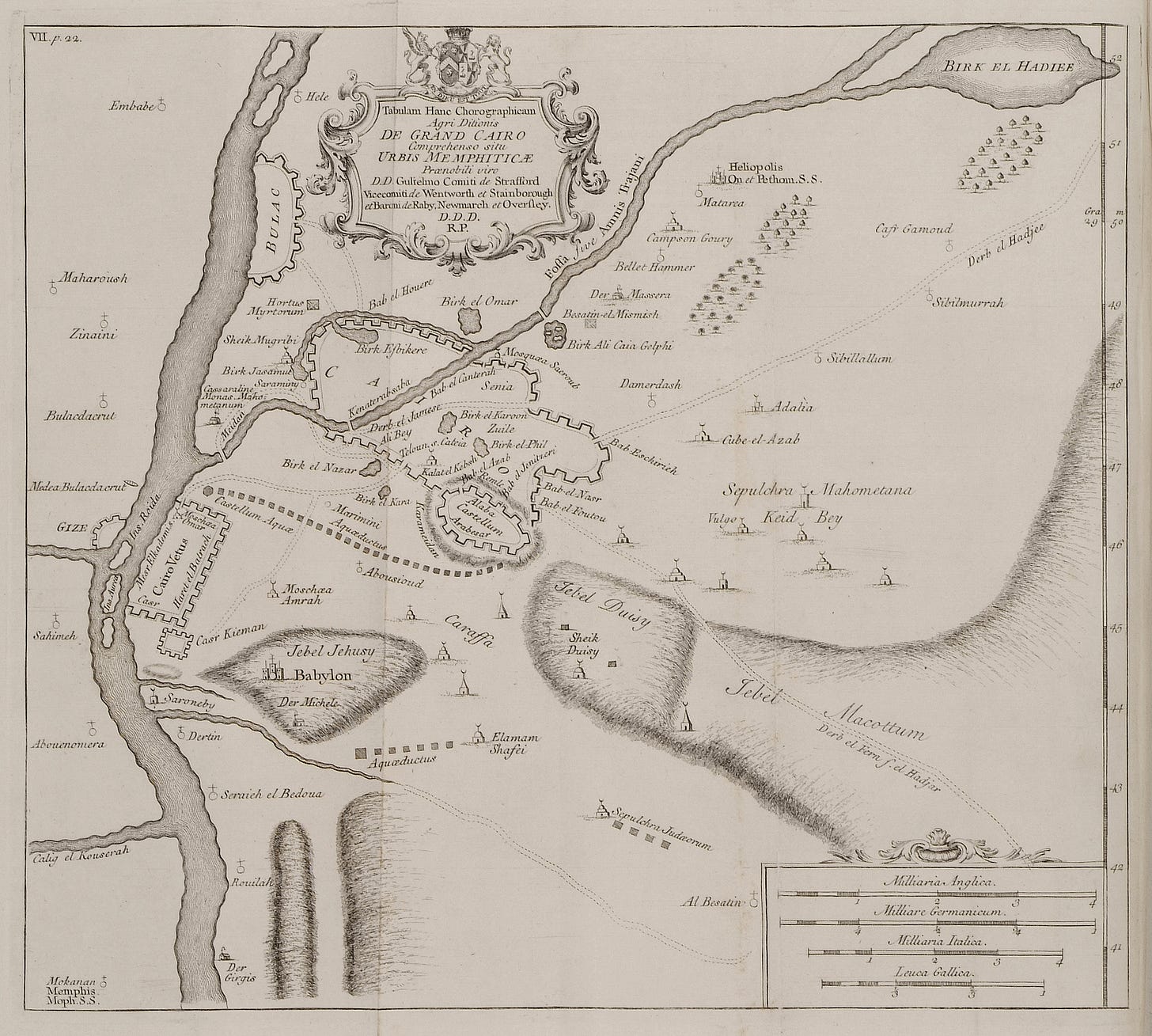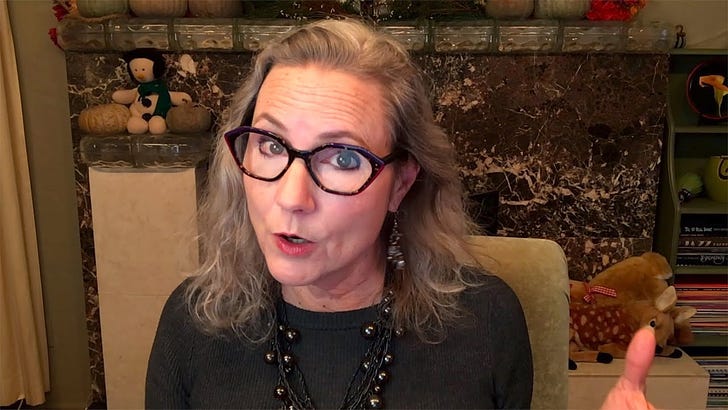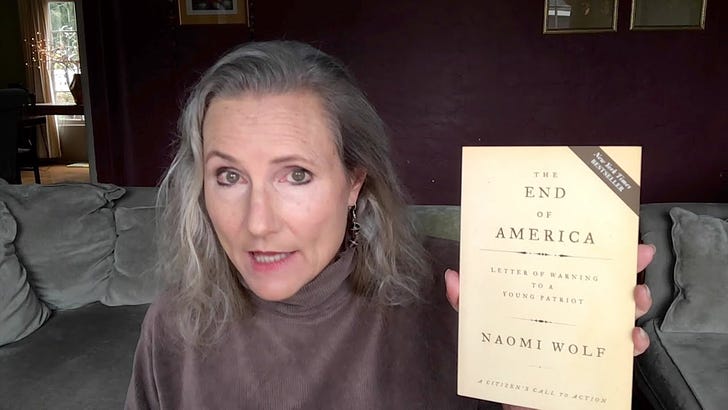The Curse of Babel
the making of biblical barbarians
In this episode, I put the Biblical story of Babel in context of the genealogy of Noah, transferring the right to rule the world from Noah’s son Shem (Shemites) to Abram, the first Hebrew. Babel is the missing link to explain the thorny problem of how there are so many languages if everyone descended from Noah. I also look at R.F. Kuang's excellent book Babel on translation, etymology and colonization. And I show off my shabby chic chandelier! Let’s start with a quote from Babel:
Hence the vanity of translation; it were as wise to cast a violet into a crucible that you might discover the formal principle of its colour and odour, as seek to transfuse from one language into another the creations of a poet. The plant must spring again from its seed, or it will bear no flower—and this is the burthen of the curse of Babel.
~Percy Bysshe Shelley
Pepe Escobar is also quoting Shelley in how “the collective West as we know it is fast flirting with a one-way ticket to the dustbin of History” by betting it all on Ukraine:
I met a traveller from an antique land, Who said—“Two vast and trunkless legs of stone Stand in the desert. . . . Near them, on the sand, Half sunk a shattered visage lies, whose frown, And wrinkled lip, and sneer of cold command, Tell that its sculptor well those passions read Which yet survive, stamped on these lifeless things, The hand that mocked them, and the heart that fed; And on the pedestal, these words appear: My name is Ozymandias, King of Kings; Look on my Works, ye Mighty, and despair! Nothing beside remains. Round the decay Of that colossal Wreck, boundless and bare The lone and level sands stretch far away.
Where we last left off in the Bible, Noah had gotten drunk from the vineyard he planted (first priority!) on dry land, and fallen asleep naked. Is that something drunks do, take off all their clothes before they pass out? His son, Ham, talked about it but Shem and Jephath walked backwards and covered their father’s nakedness with a cloak. In retaliation, Noah curses Canaan—in some passages Ham’s son, in others Noah’s son. Why Canaan when it’s Ham who talks? Curious.
Noah gives the blessing, aka the inheritance, to Shem and his descendants. This inheritance is the God-given right to rule over the family, which in this mythology, is the whole world. Noah curses the descendants of Canaan to be slaves in perpetuity to the descendants of Shem. Genesis 10:32 says:
These are the clans of Noah’s sons, according to their lines of descent, within their nations. From these the nations spread out over the earth after the flood.
From the footnote, the sons of Noah’s favored son Shem were the Shemites or Semites. Shem’s successor was Arphaxad who had Shelah father of Eber, from whom the word Hebrew comes. Eber has two sons, Peleg and Joktan. Joktan has 13 sons for 13 tribes. It continues in Genesis 11:
Now the whole world had one language and a common speech. As men moved eastward, they found a plain in Shinar and settled there. They said to each other, “Come, let’s make bricks and bake them thoroughly.” They used bricks instead of stone, and tar for mortar. Then they said, “Come, let us build ourselves a city, with a tower that reaches to the heavens, so that we may make a name for ourselves and not be scattered over the face of the whole earth.”
But the Lord came down to see the city and the tower that the men were building. The Lord said, “If as one people speaking the same language they have begun to do this, then nothing they plan to do will be impossible for them. Come, let us go down and confuse their language so they will not understand each other.
So the Lord scattered them from there over all the earth, and they stopped building the city. That is why it was called Babel—because there the Lord confused the language of the whole world. From there the Lord scattered them over the face of the whole earth.
The word barbarian comes from babble for someone who didn’t speak proper Greek, because they were a foreigner or lower class. Genesis 11:10 then repeats the genealogy of Shem up until Eber. But this time, Eber only has Peleg “and other sons and daughters.” So Joktan is demoted with the women and his 13 tribes for 13 sons are scattered.
What does this do? The descendants of Noah are the only people on the whole earth, according to the story. Noah gives Shem the inheritance to rule over his brothers and curses the descendants of Ham and Canaan to be their slaves. God backs Noah’s blessings and curses. But if everyone came from the same family, how come they talk funny? Why do they babble?
The existence of languages, clearly from different origins, gives the lie to the Shemite right to rule the world and make the Canaanites, Africans, Egyptians and Asians their slaves. The curse of Babel is essential for preserving the myth of righteous domination. Without the story of Babel, the Hebrews are mere conquerers and slave owners and traders. With Babel, they’re God’s chosen heir taking their rightful place over their sinful cousins.
The genealogy continues. Peleg, whose name means ‘the earth was divided,’ has Reu who has Serug who begets Nahor who spits out Terah who, at the ripe old age of 70, has Abram, Nahor and Haran. Terah goes with Abram and Nahor’s son Lot to Canaan, but only makes it as far as Haran.
Abram is the first to be called Hebrew in the Torah. I’ll continue with his fascinating story another time. Abram inherits the right to rule the world based on the story of Babel, which is based on the story of the flood. Without these twin myths, all people would have to logically be sovereign, since they developed their own languages independently. Without Babel, there is no inheritance given by God to rule the roost.
In a comment, Rhonda (wildrhody) linked this 1743 map of Cairo, Egypt. At the bottom right area, it shows a landmark temple with the Muslim crescent moon on top, identified as "Sepulchra Judaeorum." Deciphering the word, she writes:
Sepulchra Judaeorum = Our Judah Parcel Muse (Muse meaning, source of inspiration, to ponder, meditate, etc. Further, Gen. 23 was all about Abraham buying a parcel of land for a "buryingplace = buying parcel." I've pondered why buryingplaces were so important? Were they possibly marking a territory or hiding something within?) …
Further, the map shows 2 larger churches with crosses on top, one at the top right, in Heliopolis, which was called that instead of On, like in the KJV. Joseph married the daughter of Potipherah, the Priest of On aka Heliopolis. Then about in the middle of the map is an even larger structure with a cross, in the area called Babylon. And even though this map is in Cairo, Egypt, there are several indicators of Arabs, but what is also of interest is that the Sepulchra of Mahometana (Muhammad) is the only other sepulcher shown—in Egypt! It's as if all 3 religions originated from Egypt.
Here's the link for Heliopolis in the Septuagint, if needed. Just do a search to bring it up: https://ebible.org/pdf/eng-Brenton/eng-Brenton_GEN.pdf
The book Babel by Rebecca Kuang has a fascinating premise. Set in 1828, a Cantonese orphan is brought to London by a mysterious professor and taken under strict tutelage in Latin, Greek and Mandarin. He enters Oxford’s Royal Institute of Translation, commonly known as Babel.
There he learns to imbue silver bars with magical properties by inscribing words on opposing sides where the meaning is lost in translation, doesn’t quite mean the same. The silver does the work of making the transition, exhibiting the related quality. It completes the juxtaposition, makes the leap.
Through the extraction of silver and languages, London has amassed wealth and power. These students raised as ‘colonial bastards’ both revel in the privilege of pure knowledge and rebel against the rape of their motherlands. The indulgent face of their academic masters becomes more ugly as the colonization seeps through.
This book combined so many of my passions, for etymology, for real histories, and for world-building. Here are some of the etymology nuggets:
etymology = etymon, meaning source.
theory = Greek theoria meaning sight or spectacle, same root as theatre.
meticulous = metus Latin meaning fear or dread, later connotation fear of making a mistake.
balderdash = the concoction made by bartenders at the end of the night when they’ve run out of everything else.
I learned more about the Luddites, and why they were heroes. I learned more about the Opium War, and I expect that will continue in her trilogy: The Poppy War, Dragon Republic and The Burning God.
What it didn’t indulge was escapism: it’s brutally accurate in its reflection of British superiority and domination. I’ve been warned that the trilogy is even more dark and harsh than Babel, so I’ve loaded up on ‘cozy sci-fi’ as the genre’s called, to get me through it. We all need a spoonful of escapism to help the reality go down.
Sticks and stones may break bones but words kill the imagination. In this episode, I cite Paul Hawken's book, Blessed Unrest, in a chapter called Indogene that talks about the language of the Yamana people, who Darwin thought the lowest form of humanity. I dissect an FDA campaign that uses colloquialism to ridicule. A critique of Mattias Desmet on Unlimited Hangout looks at the sanitizing language that neutralizes atrocity. And Glenn Greenwald looks at how atrocity is used to ban the use of words.
Responds to Naomi's essay, "Have the Ancient Gods Returned?" by looking at the Hebrew Satan and the Christian Satan. Elaine Pagel's book, "The Origin of Satan" shows them to be the zealots who rebelled against Roman rule. Naomi believes the Jews have broken the covenant between God and Noah, I follow the story past the rainbow to the drunk, naked Noah cursing his grandson Canaan and his descendants to be eternal slaves to the descendants of Shem, the Semites.





You wrote:
"The book "Babel" by Rebecca Kuang has a fascinating premise. Set in 1828, a Cantonese orphan is brought to London by a mysterious professor and taken under strict tutelage in Latin, Greek and Mandarin. He enters Oxford’s Royal Institute of Translation, commonly known as Babel."
[This is quite interesting] .... continuing:
"There he learns to imbue "silver bars" with magical properties by inscribing "words on opposing sides" where the meaning is lost in translation, doesn’t quite mean the same. The silver does the work of making the transition, exhibiting the related quality. It completes the juxtaposition, makes the leap."
--- The silver is a metaphor for the wealth of the people in a society that only has a functional knowledge of half the language; the Linguistic Infiltration causes the root meaning of "Words" to be Occulted. When Language is only half known, the people who use it are sandwiched between the "Outward" Facing meaning and the power exercised in secret, by the "Occulted" root Meaning.
"Through the extraction of silver and languages, London has amassed wealth and power."
Hasn't it ever?
The City of London is in actual control of nearly ALL Franchise Corporate Governments. But the regular public has no knowledge of this, they still think they are living in National Republics, or Parliamentarian Democracies. This is the True Tower of Basel -- er Babel.
On the Silver Bricks; Words on opposite sides = the Dual Facing Heraldry -- Lawful vs Legal -- Fiat vs Money -- Public / Private arrangement of Power.
Having the Silver sandwiched between two sides of this double an-tantra = Extraction of True Wealth from everyone because it is squeezed between the outward and the hidden.
Extraction of Languages = "The Linguistic Infiltration," I have mentioned this many times, was the first theft along with Name Stealing.
Tereza, I'm curious what you think of this:
Tower of Babel always seemed to be a metaphor in story form about how to build a Collective out of a society of Individuals. King Nimrod, a hunter of men went to collect people to build a Tower to Heaven, by making Bricks.
Not noticing the people making them and forming the Tower were all Individuals, not identical like bricks but unique of different shapes like Round River Stones; as a metaphor to unique Languages. So, when the Lord mixed up the languages, this was in similar context to the failure of Centralizing; people could no longer get along, so the Tower failed to reach "Heaven," and fell. Forming a Centralized Collective Society, has the seeds of it's own destruction.
History is written by the victors who controlled the scribes. Even with today's media. Moses was an Egyptian shaman.
He threw a staff on the ground which turned into a snake and unsprung water.
Seems like a metaphor for the Indian Chakra. Ancient stories can be great rabbit holes to unify the slaves.